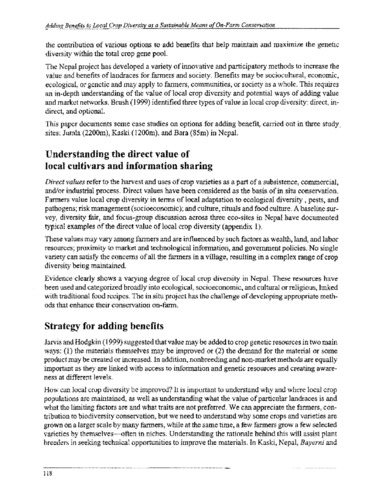Farmer participatory research in cassava technology transfer in India
The concept and methodology used in the transfer of technology (TOT) have undergone changes over the years corresponding to farmers' needs, and as a result, farmer participatory TOT has become more relevant, especially in complex diversified risk-prone (CDR) farming systems. The TOT in cassava, which largely belongs to the CDR farming system in India, is no exception to this.
The National Demonstration Programme (NDP) on cassava, which started in 1970, was the first organized attempt to transfer the improved cassava technologies, especially the hybrid varieties. The main objective of NDP was to convince the farmers about the production potential of the new cassava hybrids by conducting demonstrations in farmers' fields by scientists. It restricted the scope of farmers' participation in technology transfer. Their role was mainly confined to be the passive spectator of the demonstrations.
The scope of the farmers' participation was widened under the Operational Research Project (ORP) in the mid-seventies, which laid emphasis on the identification of constraints in the adoption of technologies. Though the farmers did not have much say in the technology transfer, they played a significant part in assisting the scientists in identifying the operational constraints to adopting the cassava technologies. The Lab-to-Land Programme (LLP), launched during 1979, witnessed greater participation of adopted farmers, by emphasizing direct linkages between scientists and farmers. The participation of the farmers was ensured right from the benchmark survey of farm families, the demonstration of cassava technologies, identification of potential spheres of development, and the dissemination of the impact of the program through fellow farmers and mass media. The impact assessment of the program revealed that there can not be a uniform package for transfer, and very often farmers try to blend the new technologies with their traditional practices. Hence, there is a need to evolve appropriate location-specific technologies suitable for various micro-environments.
On the realization of this fact, CTCRI has implemented a farmer participatory research program on cassava technology assessment, refinement and integration, which indicates the differential pattern of technology preferences in various farming situations.

